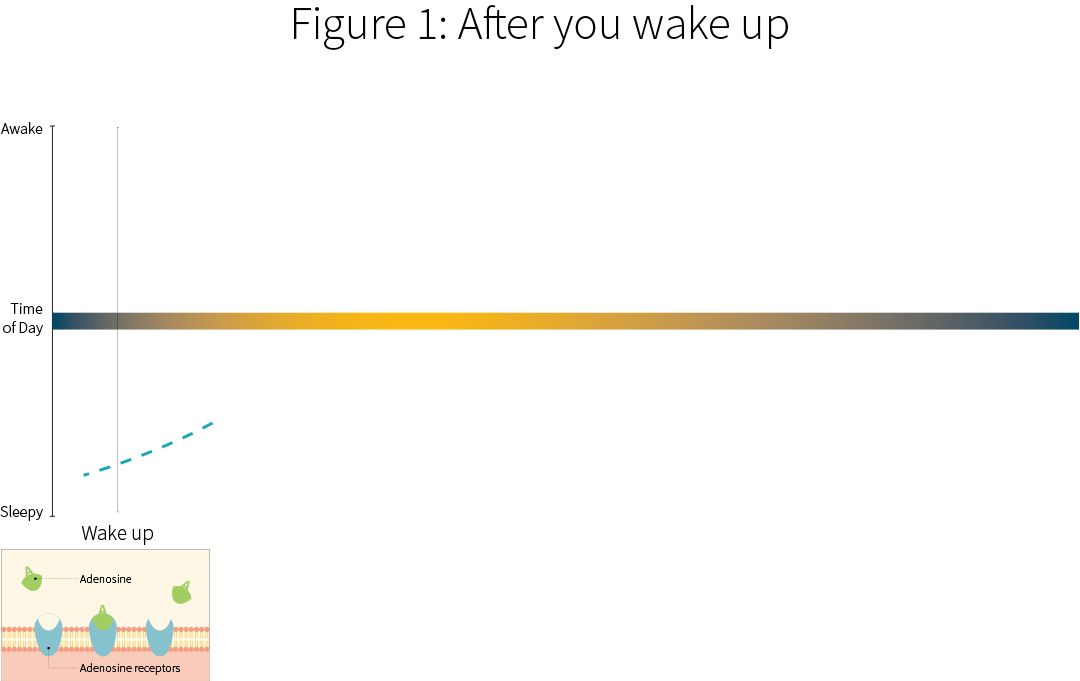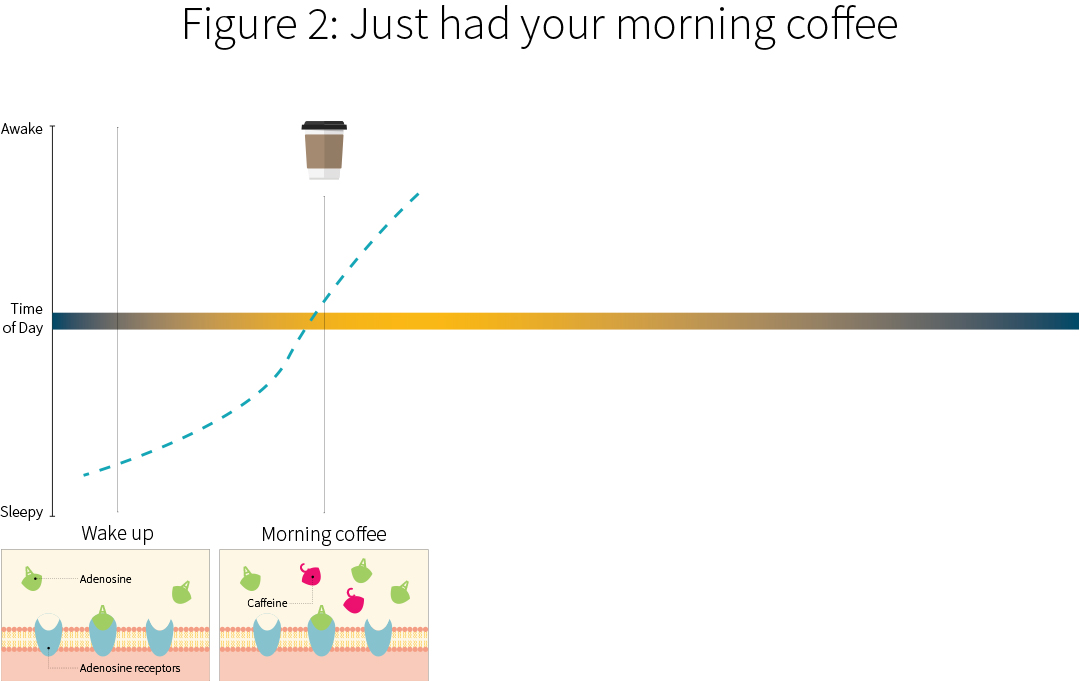What does brain health encompass?
The brain is the body's command center, controlling functions like movement and cognition, which includes problem-solving, memory, and information processing. Maintaining brain health usually involves preventing the development of neurologic conditions like Alzheimer’s disease, epilepsy, brain injury, and Parkinson’s disease. The World Health Organization (WHO) defines brain health as “a state in which every individual can realize their own abilities and optimize their cognitive, emotional, psychological, and behavioral functioning to cope with life situations.” [1]
How could diet affect brain health?
Following a balanced and nutrient-dense diet has a positive effect on brain health and function. The Mediterranean Diet, Dietary Approaches to Stop Hypertension (DASH), and Mediterranean-DASH Intervention for Neurodegenerative Delay (MIND) diets are associated with reduced cognitive decline and reduced risk for developing Alzheimer’s disease.[2] Foods like lean meats, fruits and vegetables, whole grains, nuts, seeds, and fish have positive effects on brain health. In contrast, diets rich in saturated fat, sugar, and processed food can impair brain health.
Which supplements are of most interest for brain health?
Common supplement ingredients for improving cognition include alpha GPC, Bacopa monnieri, blueberry, caffeine, Ginkgo biloba, ginseng, Huperzine A, oxiracetam, and theanine.
Optimal nutrient intake is also important for maintaining brain health, particularly iodine, zinc, copper, vitamin B1, vitamin B3, vitamin B12, and folic acid. Supplementation with these nutrients may be advised if dietary intake is inadequate.
Supplement Guide
Examine Database: Brain Health
Frequently asked questions
The brain is the body's command center, controlling functions like movement and cognition, which includes problem-solving, memory, and information processing. Maintaining brain health usually involves preventing the development of neurologic conditions like Alzheimer’s disease, epilepsy, brain injury, and Parkinson’s disease. The World Health Organization (WHO) defines brain health as “a state in which every individual can realize their own abilities and optimize their cognitive, emotional, psychological, and behavioral functioning to cope with life situations.” [1]
Brain-derived neurotrophic factor (BDNF) is a member of the neurotrophin[10] family, a group of growth factors that are specific to nervous tissue and are known to regulate many cellular processes involved in survival, proliferation, and maturation of certain neurons. Principally known for its role in learning and memory,[11] BDNF touches upon several brain functions,[12] including neurogenesis, synaptic plasticity (the ability of connections between neurons to strengthen or weaken over time), neuroprotection, inflammation, immunity, and energy metabolism.[13]
BDNF has been inversely associated with neurodegenerative (e.g., Alzheimer’s disease, Parkinson’s disease) and metabolic disease (e.g., obesity, diabetes), as well as stress, and can be modulated by lifestyle habits (e.g., exercise, diet).
Following a balanced and nutrient-dense diet has a positive effect on brain health and function. The Mediterranean Diet, Dietary Approaches to Stop Hypertension (DASH), and Mediterranean-DASH Intervention for Neurodegenerative Delay (MIND) diets are associated with reduced cognitive decline and reduced risk for developing Alzheimer’s disease.[2] Foods like lean meats, fruits and vegetables, whole grains, nuts, seeds, and fish have positive effects on brain health. In contrast, diets rich in saturated fat, sugar, and processed food can impair brain health.
One major factor in cognitive decline is that the brain can fail to obtain enough energy to function properly, be it from vascular problems or insulin resistance.[3][4][5] A keto diet is believed to provide a neuroprotective benefit by reducing oxidative stress and increasing mitochondrial respiration.[6]
A keto diet is also believed to provide benefits by reducing the oxidation of glucose and leading to calorie restriction,[6] neither of which would necessarily be achieved through the use of exogenous ketone supplements. The few studies available on people with Alzheimer’s disease suggest that a ketogenic diet may provide potential benefits, but ultimately needs to overcome a brain energy deficit.[7] By this logic, exogenous ketones could be beneficial by allowing both glucose and ketones to act as fuel sources for the brain.
Research investigating the role of exogenous ketones in neurodegenerative diseases and cognitive decline is lacking. What studies are available test cognitive function in healthy adults after a bout of endurance exercise. These studies suggest that supplementing with exogenous ketones either benefits cognitive function when combined with carbohydrates, as compared with carbohydrates alone,[8] or provide no benefit when taken alone, as compared with a noncaloric placebo.[9]
The evidence surrounding this topic is equivocal and methodologically heterogeneous. Some studies involving healthy adults[14] suggest a small benefit of consuming breakfast for memory, specifically regarding particularly delayed recall, which involves reproducing information learned about 15–45 minutes prior. However, overall, no cognitive differences after skipping breakfast are observed.
As with other research on breakfast consumption, these studies are acute and do not differentiate between people who habitually eat breakfast and people who do not. Thus, it’s possible that the memory effects are simply due to the fact that people who habitually eat breakfast are not physiologically adapted to skipping it. Nevertheless, it is worth pointing out that there is no strong evidence favoring breakfast for cognition, as it is commonly believed.
Over the course of a day, you get sleepy as adenosine binds to A1 receptors in your brain. Caffeine blocks adenosine from binding, thus making you feel alert and also helping you feel better.
Caffeine is the most widely consumed psychoactive drug in the world, largely due to its mood-enhancing and stimulatory effects.
Despite widespread consumption, few people are actually aware of how caffeine works in the body.
We thought you might be interested in learning exactly how caffeine works in your body after you ingest it and it enters the brain.
But first: how adenosine makes you feel sleepy
The key player here is adenosine.
If you remember your high school biology, think of the lock-and-key model.
Adenosine is a key that opens up a variety of locks, with the locks actually being receptors in the brain.
Once adenosine (the key) locks into a certain receptor (the lock) in the brain, it has a unique effect on the brain.
There are a host of different receptors in your brain, so different ones have different effects. The one we’re interested in is the A1 receptor. Once adenosine locks with the A1 receptor, it promotes muscle relaxation and sleepiness, which is why people get tired as the day progresses.
Furthermore, adenosine can bind to the A2A receptor. When it binds, this interferes with the release of mood-improving neurotransmitters, such as dopamine.
Adenosine itself is produced primarily from physical work and intensive brain use. Thus, over the course of the day, your body accumulates adenosine.
If only there was something that could get in the way of adenosine from locking into the A1 receptor...
Adenosine is one of the best-known sleep-regulating molecules. Located in your central nervous system, it helps get you sleepy as the day winds down, among other effects.
What caffeine does in your brain
Before caffeine
When you first wake up, your body has metabolized away the adenosine molecules. You’re a bit groggy, but you’re waking up.

Ingesting Caffeine
Most people initially drink caffeine in the form of a beverage. It’s absorbed in the small intestines within an hour, and becomes available throughout the blood and most parts of the body, including your brain.
As it starts entering your brain, it starts competing with adenosine.

Peak Concentration
Blood concentrations of caffeine tend to peak within two hours, which also means that brain concentrations of caffeine are at their peaks. The caffeine in your brain is competing with adenosine and preventing it from binding to A1 receptors. This is what gives you a jolt of wakefulness.
To be precise, the caffeine doesn’t actually lock in with the A1 receptor. It’s more like something that gets in the way and occupies the lock, rather than actually unlocking it.
It similarly gets in the way of the A2A receptor, which can help promote the release of dopamine and glutamate (and make you feel good after you drink coffee)!

Decreasing caffeine
Eventually, caffeine molecules will unbind from the adenosine receptors (as all molecules generally do).
Most of caffeine is metabolized through the CYP1A1/2 enzymes into various substances such as araxanthine, theobromine, and theophylline.
The half-life (the amount of time it takes for the concentration of a substance to be halved) of caffeine in the body ranges from three to ten hours depending on the amount of CYP1A1 in the body, which varies from individual to individual.

Feeling sleepy again
By early evening, most of the caffeine from your morning cup of coffee has metabolized. There are significantly fewer caffeine molecules occupying the A1 receptors, so adenosine starts binding to them.
This starts promoting muscle relaxation and sleepiness, and that’s why you start feeling sleepy.

When you go to sleep and your body starts recovering, the adenosine molecules are metabolized. This is why sleep is so important - one of the issues with a lack of sleep is the increase in adenosine molecules. This then takes us back to the "Before Caffeine" step.
Of course, you can always attempt to drink a larger dose of caffeine at one sitting, or drink caffeine multiple times during the day to keep sleepiness at bay. But that’s not really a sustainable strategy.
Caffeine allows people to remain awake by competing with a molecule that promotes sleepiness called adenosine. Caffeine has a similar shape to adenosine and prevents it from binding to its receptors.
For more information, check out our in-depth caffeine page.
Common supplement ingredients for improving cognition include alpha GPC, Bacopa monnieri, blueberry, caffeine, Ginkgo biloba, ginseng, Huperzine A, oxiracetam, and theanine.
Optimal nutrient intake is also important for maintaining brain health, particularly iodine, zinc, copper, vitamin B1, vitamin B3, vitamin B12, and folic acid. Supplementation with these nutrients may be advised if dietary intake is inadequate.
Nootropics, also known as smart drugs or cognitive enhancers, are compounds that are used to improve brain health and cognitive function.
Medications that treat cognitive disorders can act as nootropics. While these medications are beneficial for treating disorders that cause cognitive impairment(e.g., ADHD), they only provide slight benefit in some aspects of cognition for individuals without these conditions.[15] Given the fact that many cognitive-enhancing medications are stimulants, using these drugs may result in unpleasant side effects such as headaches, nausea, palpitations, and vomiting. Additionally, the lack of studies examining the long-term consequences of cognitive-enhancing drug use in people without cognitive disorders raises additional safety concerns.[16]
Other nutritional supplements that are considered nootropics include L-tyrosine, Alpha-GPC, Bacopa Monnieri, and Ginkgo Biloba. Current research indicates that some nootropic supplements slightly improve cognitive function, but additional research is needed to identify appropriate dosing and supplementation duration.[17]
References
- ^The content of this page was partially adapted from the World Health Organization Accessed 17 May 2022
- ^Annelien C van den Brink, Elske M Brouwer-Brolsma, Agnes A M Berendsen, Ondine van de RestThe Mediterranean, Dietary Approaches to Stop Hypertension (DASH), and Mediterranean-DASH Intervention for Neurodegenerative Delay (MIND) Diets Are Associated with Less Cognitive Decline and a Lower Risk of Alzheimer's Disease-A ReviewAdv Nutr.(2019 Nov 1)
- ^Philip B Gorelick, Scott E Counts, David NyenhuisVascular cognitive impairment and dementiaBiochim Biophys Acta.(2016 May)
- ^Martin Dichgans, Didier LeysVascular Cognitive ImpairmentCirc Res.(2017 Feb 3)
- ^Christian Benedict, Claudia A GrilloInsulin Resistance as a Therapeutic Target in the Treatment of Alzheimer's Disease: A State-of-the-Art ReviewFront Neurosci.(2018 Apr 10)
- ^Dariusz WłodarekRole of Ketogenic Diets in Neurodegenerative Diseases (Alzheimer's Disease and Parkinson's Disease)Nutrients.(2019 Jan 15)
- ^Cunnane SC, Courchesne-Loyer A, Vandenberghe C, St-Pierre V, Fortier M, Hennebelle M, Croteau E, Bocti C, Fulop T, Castellano CACan Ketones Help Rescue Brain Fuel Supply in Later Life? Implications for Cognitive Health during Aging and the Treatment of Alzheimer's DiseaseFront Mol Neurosci.(2016 Jul 8)
- ^Mark Evans, Brendan EganIntermittent Running and Cognitive Performance after Ketone Ester IngestionMed Sci Sports Exerc.(2018 Nov)
- ^Hunter S Waldman, Steven A Basham, Ffi G Price, JohnEric W Smith, Harish Chander, Adam C Knight, Ben M Krings, Matthew J McAllisterExogenous ketone salts do not improve cognitive responses after a high-intensity exercise protocol in healthy college-aged malesAppl Physiol Nutr Metab.(2018 Jul)
- ^Nan Xiao, Quynh-Thu LeNeurotrophic Factors and Their Potential Applications in Tissue RegenerationArch Immunol Ther Exp (Warsz).(2016 Apr)
- ^Magdalena Miranda, Juan Facundo Morici, María Belén Zanoni, Pedro BekinschteinBrain-Derived Neurotrophic Factor: A Key Molecule for Memory in the Healthy and the Pathological BrainFront Cell Neurosci.(2019 Aug 7)
- ^Siresha Bathina, Undurti N DasBrain-derived neurotrophic factor and its clinical implicationsArch Med Sci.(2015 Dec 10)
- ^Krisztina Marosi, Mark P MattsonBDNF mediates adaptive brain and body responses to energetic challengesTrends Endocrinol Metab.(2014 Feb)
- ^Galioto R, Spitznagel MBThe Effects of Breakfast and Breakfast Composition on Cognition in AdultsAdv Nutr.(2016 May 16)
- ^Roberts CA, Jones A, Sumnall H, Gage SH, Montgomery CHow effective are pharmaceuticals for cognitive enhancement in healthy adults? A series of meta-analyses of cognitive performance during acute administration of modafinil, methylphenidate and D-amphetamine.Eur Neuropsychopharmacol.(2020-Sep)
- ^Schifano F, Catalani V, Sharif S, Napoletano F, Corkery JM, Arillotta D, Fergus S, Vento A, Guirguis ABenefits and Harms of 'Smart Drugs' (Nootropics) in Healthy Individuals.Drugs.(2022-Apr)
- ^Cristina Lorca, María Mulet, Catalina Arévalo-Caro, M Ángeles Sanchez, Ainhoa Perez, María Perrino, Anna Bach-Faig, Alicia Aguilar-Martínez, Elisabet Vilella, Xavier Gallart-Palau, Aida SerraPlant-derived nootropics and human cognition: A systematic reviewCrit Rev Food Sci Nutr.(2022 Jan 3)






